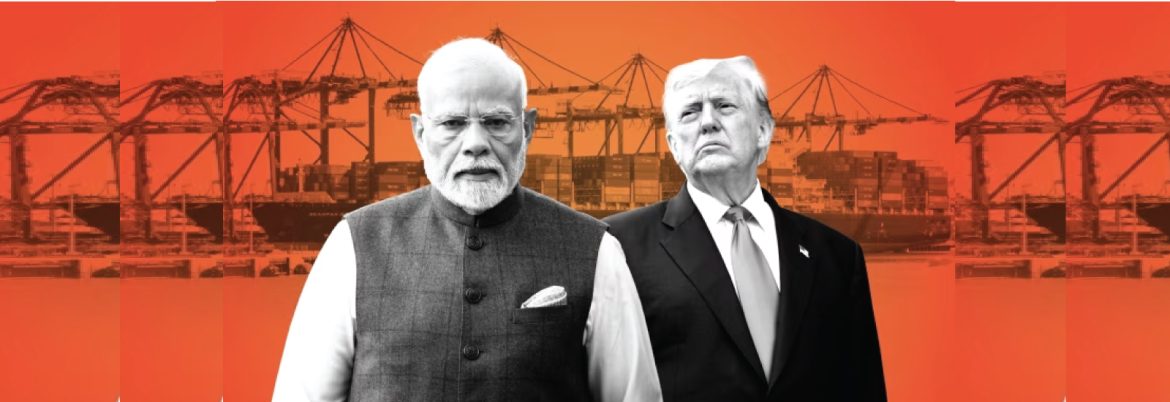For years, Washington and New Delhi have described their relationship as a “natural partnership,” built on shared democratic values and converging interests in balancing China’s rise. Under the Biden administration’s Integrated Deterrence framework (2022), India was factored into America’s Indo-Pacific strategy as a potential parallel force to contain Beijing. Yet beneath the surface of rhetoric, India’s prestige-driven strategic culture has always been in friction with American pragmatism. This contradiction has come to the fore most visibly not in oil or tariff disputes, but in the aftermath of the May 2025 four-day war with Pakistan. India’s humiliation both militarily and diplomatically raised serious doubts in Washington about New Delhi’s ability to serve as a credible counterweight to China. For the US, the war highlighted that India’s ambitions as a Vishwaguru far exceed its capabilities, making it a less reliable partner in the strategic equation. The Russia factor, though often highlighted, was secondary. By 2023, Russia had indeed become India’s largest crude oil supplier, accounting for nearly 35% of imports. Washington viewed this as problematic given its labeling of Moscow as an “acute threat,” a view strongly reinforced by Donald Trump’s claim that Russia’s actions posed “an unusual threat to US national security and foreign policy.” Yet the US had tolerated India’s balancing act with Moscow before. What changed after May 2025 was perception: India fell short of US expectations as a military partner. Tariffs were Washington’s response. Trump’s economic nationalism had already created tensions, with India losing its Generalized System of Preferences (GSP) trade benefits in 2019. But the new round of punitive tariffs 25% already in place and another 25% to take effect on August 27, 2025 reflected more than trade disputes. They symbolized Washington’s disillusionment with India’s credibility as a strategic pillar. New Delhi’s response was characteristically defiant. Prime Minister Narendra Modi, at the M.S. Swami Nathan International Conference, declared India’s farmers “our top priority, no matter what price we have to pay.” Meanwhile, the Ministry of External Affairs dismissed the US tariffs as “unjustified” and highlighted Western hypocrisy in sparing other major buyers of Russian oil. At the heart of the rift lies India’s prestige-driven strategic posture. From Cold War ties with the Soviet Union under the Non-Aligned Movement, to its 1974 and 1998 nuclear tests, to the 2018 purchase of S-400s from Moscow, India has consistently sought global recognition even at the cost of partner trust. Its May 2025 military setback only deepened this imperative, as New Delhi doubled down on rhetoric of civilizational leadership and technological self-reliance, including its ICBM and hypersonic programs. Yet for the US, prestige does not translate into power. The war revealed that India’s ambitions are not matched by its capacity, making punitive tariffs both an economic tool and a political signal: Washington will not underwrite India’s prestige project if it undermines American strategy. For Pakistan, these tensions open limited but tangible opportunities. Disruption in India’s trade flows may encourage investors to look at Pakistan as an alternative destination particularly in agriculture and low-cost manufacturing provided Islamabad enacts favorable policies. Gulf and ASEAN markets could also tilt slightly toward Pakistan if India’s exports weaken under tariff pressure. Still, Pakistan must tread carefully: Washington will not pivot fully toward Islamabad, given its reliance on New Delhi for Indo-Pacific strategy and Pakistan’s deepening partnership with Beijing under CPEC. The challenge for Islamabad lies in balance: leveraging China’s Belt and Road Initiative while maintaining pragmatic ties with the US for financial and diplomatic cover, especially at forums like the IMF. In sum, the Russia oil imports dispute may have strained ties, but the May 2025 war shattered illusions. It revealed to Washington that India, far from being a dependable parallel to counterbalance China, remains vulnerable and prestige-obsessed. For the US, pragmatism means imposing tariffs even on allies; for India, prestige means resisting external dictates at all costs. The Trump–Modi tariff clash thus accentuates a hard truth of international politics: alliances are fragile, bound not by friendship but by converging self-interests. When those diverge, as they have now, even the most celebrated partnerships can unravel overnight leaving both states to confront the costs of ambition and the reality of limitation.
Trump vs. Modi: When Allies Collide Over Tariffs
184



